 Petzlover
Petzlover Both Sokoke and Somali are originated from United States. Both Sokoke and Somali are of same weight. Both Sokoke and Somali has almost same life span. Both Sokoke and Somali has same litter size. Sokoke requires Low Maintenance. But Somali requires Moderate Maintenance
Both Sokoke and Somali are originated from United States. Both Sokoke and Somali are of same weight. Both Sokoke and Somali has almost same life span. Both Sokoke and Somali has same litter size. Sokoke requires Low Maintenance. But Somali requires Moderate Maintenance
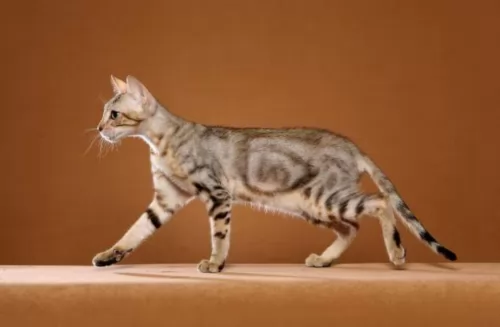 Compared to other breeds of cat, the rare Sokoke Forest Cat is a fairly new natural breed. It comes from the Sokoke district of eastern Kenya but was developed in the USA.
Compared to other breeds of cat, the rare Sokoke Forest Cat is a fairly new natural breed. It comes from the Sokoke district of eastern Kenya but was developed in the USA.
It is in fact, named after the Arabuko Sokoke National Forest, from where the wild foundation stock came from. Wildlife artist Jeni Slater started breeding these cats in the 1970s. They eventually reached Denmark, where further breeding continued, with the cat becoming popular with local cat fanciers, and laid the foundation of the breed in Europe.
Today, there are just a few breeders registered in the UK and TICA, The International Cat Association lists the Sokoke cat as a New Preliminary Race and it was recognized by FIFe in 1993.
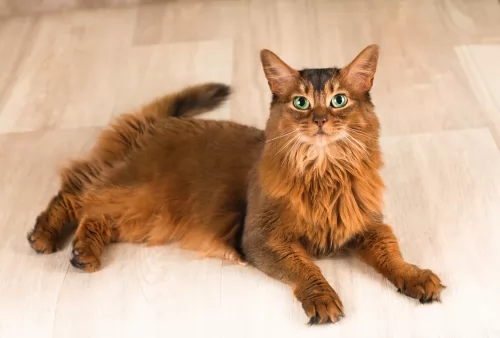 The Somali is a medium- to longhaired Abyssinian. It was in Britain that the original introduction of the longhaired gene took place.
The Somali is a medium- to longhaired Abyssinian. It was in Britain that the original introduction of the longhaired gene took place.
The first Somali cats came about in 1940 and it was British breeder Janet Robertson who exported some of her Abyssinian kittens to New Zealand, Australia and North America, Australia. Most of the kittens had long hair and breeders started showing an interest.
An American Abyssinian breeder Evelyn Mague decided to call her cats Somalis and the breed was recognized internationally by 1991.
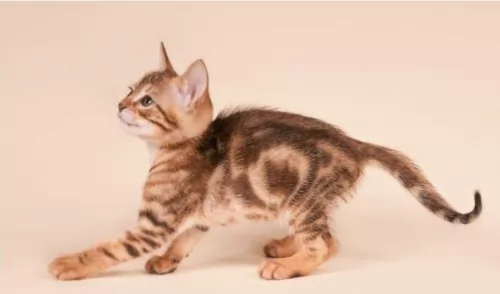 The Sokoke is a medium-sized cat with a long, lean body and slender legs. The hind legs are somewhat longer than the front legs. The head is smallish and round and he has a constantly alert look to him.
The Sokoke is a medium-sized cat with a long, lean body and slender legs. The hind legs are somewhat longer than the front legs. The head is smallish and round and he has a constantly alert look to him.
A striking characteristic of the Sokoke cat is its tabby fur, which people say looks like the bark of a tree and it is brindle in coloring.
The tail is medium to long and the ears are also fairly large, The eyes are large and almond-shaped and can be greenish to brown. The coat is short and coarse.
Cat lovers enjoy these playful, curious, intelligent, and family-orientated cats. In spite of their wild side, they adapt easily into different homes.
They’re inquisitive and will follow you, much like a dog. They will even enjoy a leash being put on them and being taken for a walk. They’re very sociable and vocal too and get on with everyone, children and other pets included.
They’re playful cats, loving to jump and climb and then look down at you from their high perches. Easily bored, you will need to provide fun and games continuously.
They enjoy being involved with everything you’re doing and form a strong bond with their owners. Because the Sokoke is social and affectionate, they require quite a lot of attention, and if they don’t get the attention they crave, they meow in anxiety.
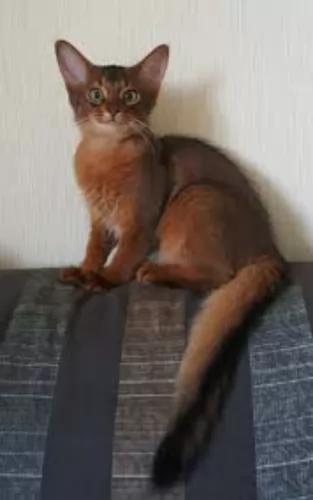 The beautiful Somali is a medium-sized cat which means he weighs in the region of 3 to 6kg. He is muscular and lean with the ears being set wide apart.
The beautiful Somali is a medium-sized cat which means he weighs in the region of 3 to 6kg. He is muscular and lean with the ears being set wide apart.
The ears are also tufted. The eyes of the Somali are almond-shaped and are usually a brown shade or green in color. The legs are long and the paws are also somewhat tufted. The tail is well plumed.
The Somali's coat is lovely and soft, while being thick and lustrous. The adult cats have a ruff. The Somali's coat comes in a range of colors but the most regular color is a beautiful brownish color with black ticking.
The Somali is an intelligent cat that relies heavily on its human owners for company as well as love and care.
They’re fun-loving cats that get on well with children in the home and from other pets. They are active cats and will need exercise. They should have some high perches and cat trees available so they can jump and climb.
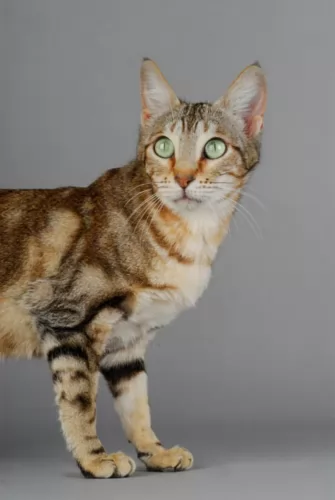 Your Sokoke is a very social cat and he will get on particularly well in a home with children who have been taught to be kind and gentle with animals.
Your Sokoke is a very social cat and he will get on particularly well in a home with children who have been taught to be kind and gentle with animals.
They are able to adapt well to homes where there are other pets too. They just love exercise and lots of fun. They don’t like being in a home where the owner is out at work all day. The solution to this is to provide him with another cat as a companion.
Sokoke cats are great with people of all ages, and when you bring one of these lively cats into your home, make sure he also receives his share of love and companionship.
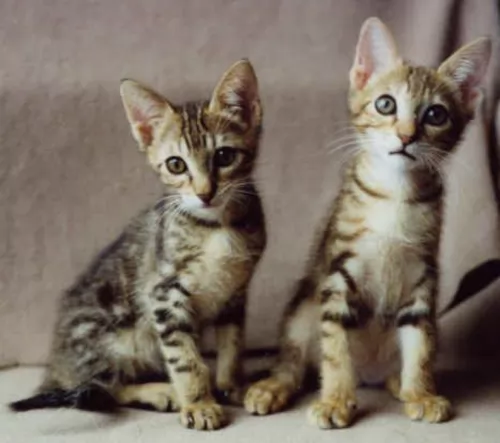 Sokoke cats are generally healthy and have no inherited diseases. To ensure that your Sokoke stands a chance of having a healthy life, you need to have him vaccinated against the life-threatening cat diseases there are.
Sokoke cats are generally healthy and have no inherited diseases. To ensure that your Sokoke stands a chance of having a healthy life, you need to have him vaccinated against the life-threatening cat diseases there are.
If your Sokoe cat isn’t his usual self day after day, make a point of getting him to the vet just as soon as possible.
Parasites are a terrible scourge with cats, and in fact, the number one cause of hair loss in cats is fleas. The bite of a flea can cause an allergic reaction. Your cat can become miserable with continuous biting, itching, and scratching and this can all lead to hair loss.
It is a wise move to speak to your vet about a good product to treat your furry friend with.
There can actually be many causes of diarrhea in cats and one of them is parasites, but it can also be caused by a viral infection or food allergy or something else.
You want to get your cat to the vet who can help you bring it under control. You may also have to feed your cat a bland kind of diet to help the cat’s digestive tract recover from the diarrhea.
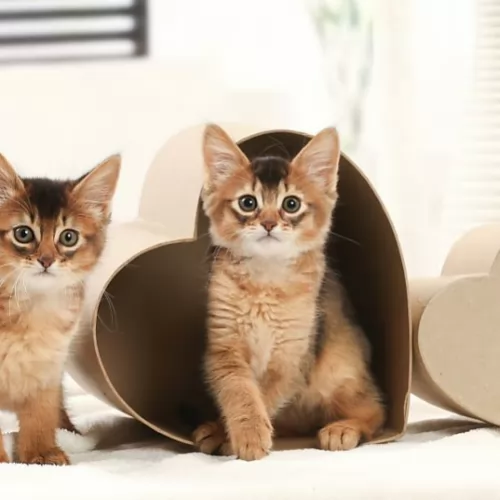 Although the Somali cat breed is healthy, as with many other cat breeds, there are a few hereditary diseases found in the Abyssinian that may be linked to this breed too. Look out for eye problems with the cat as well as anaemia.
Although the Somali cat breed is healthy, as with many other cat breeds, there are a few hereditary diseases found in the Abyssinian that may be linked to this breed too. Look out for eye problems with the cat as well as anaemia.
Progressive retinal atrophy (PRA) is a degenerative disorder of the retina. This eye disease can either be inherited or acquired.
When a cat gets sick there are some antibiotics that have been associated with progressive retinal atrophy in cats. Cats can also develop vision loss if their diet is deficient.
You have to be very aware of your cat’s diet and ensure that he is getting all the right ingredients, one of which is amino acid taurine. If you can see that your cat is battling to see, you should get him immediately to the vet.even though there is no treatment for PRA. . The vet will explain to you how to make life more comfortable for your pet.
Anemia isn’t a specific disease with your cat but rather the result of some other disease or condition. The most common sign that your cat has anemia is that you won’t find that normal pink color of the gums. Your cat will be listless and there may also be signs of blood loss such as blood in the feces or urine. Your vet will do several tests to diagnose the anemia.
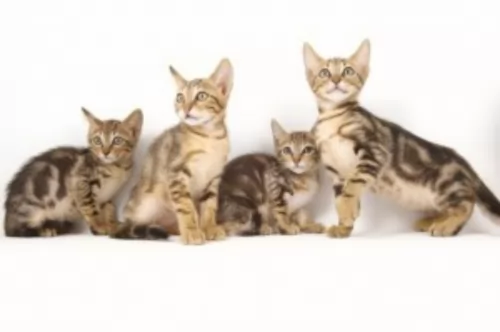 Because the Sokoke’s coat is short and close-lying, with little or no undercoat, brushing once a week will be sufficient.
Because the Sokoke’s coat is short and close-lying, with little or no undercoat, brushing once a week will be sufficient.
The Sokoke cat is very energetic, and he will need games, toys, and attention to keep him physically and mentally stimulated. They love climbing so a climbing tree and other kind of equipment will be a good idea.
Provide your cat with a litter box and ensure it is kept scrupulously clean by removing the cat’s feces every single day.
Diet is of critical importance to the health and happiness of a cat. Some people try to feed their cats human foods and wonder why their cat is continuously sick. A cat is a carnivore and he requires meat.
You can speak to your vet about the best kind of commercial cat food there is for your cat. Read the label and feed him portion-sizes as directed.
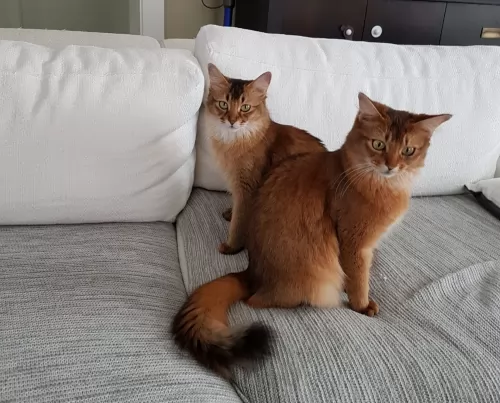 Cats can sometimes be finicky eaters and even the most delectable morsels might be ignored.
Cats can sometimes be finicky eaters and even the most delectable morsels might be ignored.
Every cat is unique but every cat is a carnivore – a meat eater – and requires a host of nutrients in their food to be healthy. Commercial cat foods aren’t all one and the same. You get different food for kittens, different foods for young adults, for pregnant cats, for energetic cats, and so on.
There is cat food for every season of a cat’s life. Other important considerations are feeding the right quantity of food to your cat.